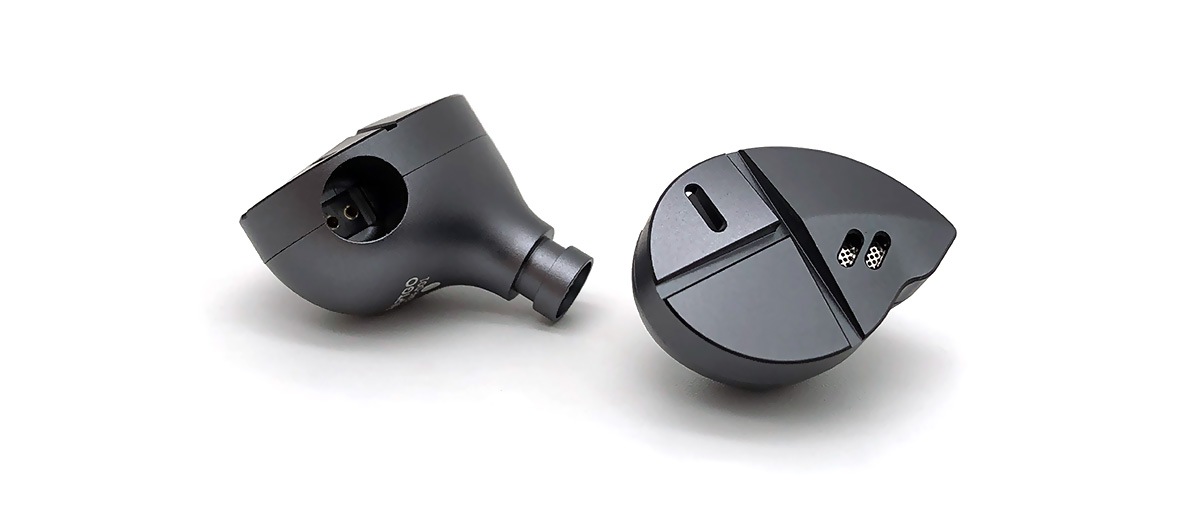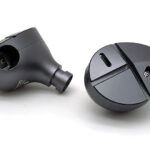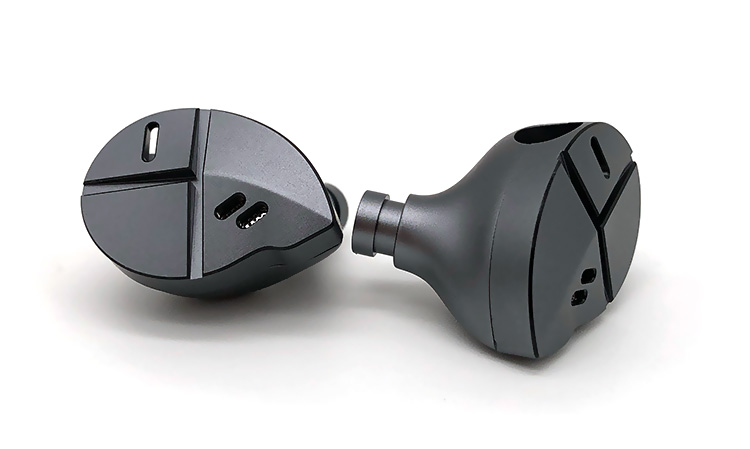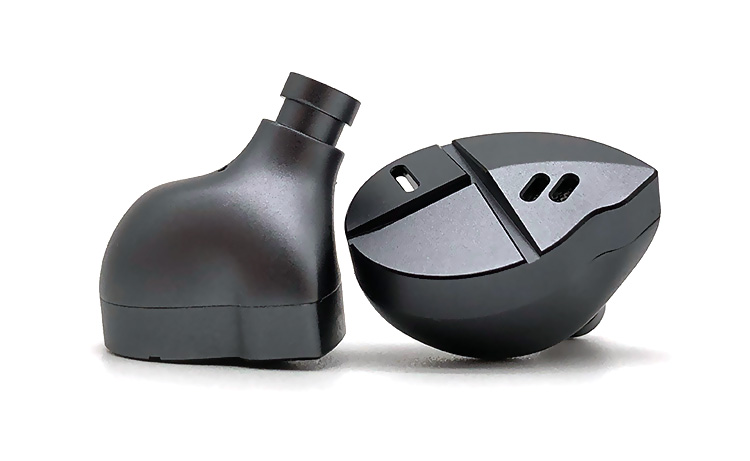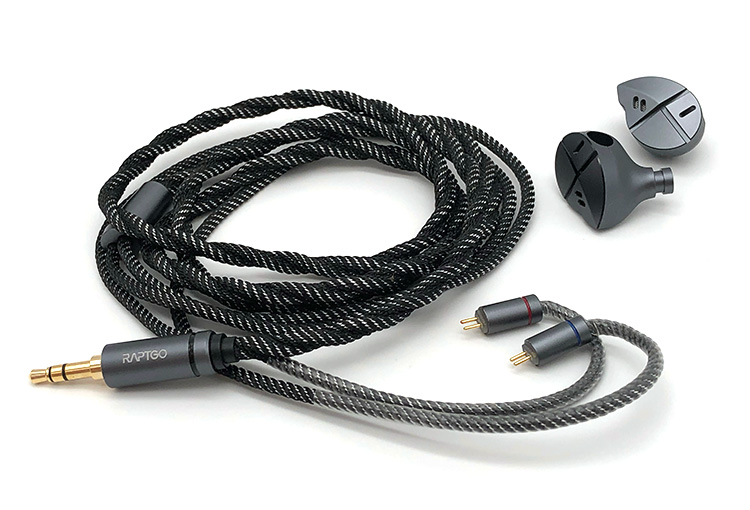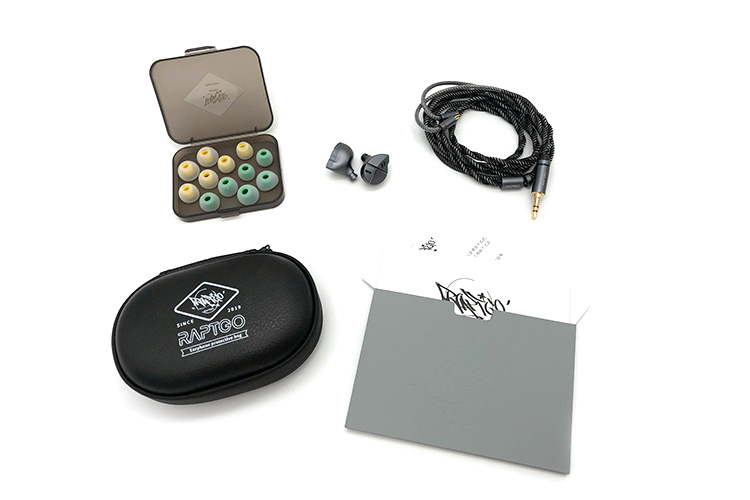Today, we review the RAPTGO Leaf D01, which is an affordable self-developed 10mm dual cavity dynamic driver universal in-ear monitor. It is priced at $129.
Disclaimer: This sample was sent to us in exchange for our honest opinion. Headfonics is an independent website with no affiliate links or status. We thank Linsoul for this opportunity.
Click here to read more about Linsoul gear that we have previously covered on Headfonics.
Note, that this article follows our latest scoring guidelines which you can read here.
There is no doubt that the young IEM manufacturer Raptgo can design novel and exciting releases as they did with the Hook-X. But I bet not a lot knew of the brand before their TOTL hybrid planar and PZT driver which makes it all the more exciting to know where they’re headed.
So, when I heard Raptgo set its sights on announcing a new single dynamic driver IEM called the Leaf D01, I became curious if it will be a successful streak.
The real challenge I see with the Leaf D01 is if the $100 savings from the Hook-X are a cause for concern or celebration.
Tech Highlights
Without the mumbo jumbo of a multiple-driver system, the Leaf D01 is kept simple with a single 10mm Liquid Crystal Polymer (LCP) dynamic driver. It is a newly developed driver by Raptgo capable of producing frequencies ranging between 20Hz and 35kHz.
What’s special about this is that even with their limited budget they still came up with a dedicated driver. The tuning and tweaking of the 9 micro-LCP diaphragm and the dual layer OFC voice coil are up to Raptgo to settle.
The Leaf D01 is also designed with a semi-open back cavity as shown by the two chunks of cutouts on the face. This kind of treatment usually helps in reducing unwanted ear pressure and in some applications improves the sound as well.
Design
Of course, the Leaf D01 is shaped in the same form as where it is named after. Still, it lacks any shade usually associated so the rugged aviation-grade aluminum body of the Leaf D01 won’t be reminiscent of the greens unless told.
And when worn, I also noticed that the tip that mimick where a leaf end is pointed downwards. So, onlookers will be less likely to relate the Leaf D01 to its inspiration with one glance alone.
I won’t dismiss though that when oriented properly, the Leaf D01 is an elegantly designed IEM. The perpendicular canal forms a solid lure continuing to the soft crease, completing a leaf’s guise.
While touching the surface as I inspected the build quality, the soft brilliance coming off of the IEM supported the solid material used for the chassis. And according to Raptgo, the exterior has been treated for improving the resistance of the Leaf D01 to wear.
Using regular 0.78mm 2-pin sockets, what’s unique about the Leaf D01 is the sunken hole where the cable should be inserted. I did find it worrying in the beginning since not being able to see inside I could be forcing the pins in while not yet aligned.
Comfort & Isolation
Thanks to the recessed connectors fastened deeper than usual the ear guides are positioned right where it needs to be to not have an awkward gap curving back. This may be so but the actual curvature, once it reaches the lower portion, is not as snug feeling so it is not as secure as I would have liked.
The shape of the shell also sits a bit weak in my ear. While I hold the Hook-X with high praise as it sits firmly even with its heavier and bulkier build, the Leaf D01 falls out more easily probably because of its smaller and more elongated dimensions.
Where the Leaf D01 gains confidence is in its nimble weight once put on. It may be dense and solid in the hand being fully metal but that quickly fades when it also isolates pretty averagely for a semi-open back when fitted correctly.
Tips
I’ll get to the differences in sound in a later section since there is no clear label differentiating the two sets of silicone ear tips provided. But it is nice of Raptgo to use a hard case to store the tips which can be used if you want to also bring aftermarket ones on the go.
The main identifying factor when selecting tips is the different colored stems. What’s less obvious though since the bore width and overall dimensions are similar is that one set has a harder composition while the other is on the softer side.
Stock Cable
There are two obvious changes Raptgo did to the cable of the Leaf D01. The 1.25m cable provided is still using 0.78mm 2-pin connectors for the IEMs but it no longer has the interchangeable connectors and the color is now more neutral.
I do not mind losing the ability to swap the ends of the cable since at the end of the day I much prefer simplicity and save on the extra jacks not included. For me, the standard 3.5mm jack is also putting less strain when plugged in since it is also shorter built.
The finish on the metals used on the y-split and jacks are solid and the 2-pin is also designated with a red and blue ring to identify the side. And the softness of the paracord cable is flexible enough plus it has a premium-looking nylon braid that if not for the slight microphonics is already nice for everyday use.
Packaging & Accessories
Probably because the brand is pretty young, the unboxing of the Leaf D01 is identical to their more successful and expensive Hook-X monitor to build an upscale image. Raptgo kept the box in a sleeve together with the bristly yet nice-to-touch materials used inside.
But before we see the Leaf D01, a thin translucent plastic with the Raptgo logo will teasingly show what’s underneath. While it doesn’t directly serve any real purpose to protect the contents, it does again show that Raptgo cares about the experience.
With a modest partition made from thick cardboard hiding the paper works taking up most of the lower section, the Leaf D01 in its area is free from any distraction. Below both sections are the rest of the accessories.
The part where the cheaper Leaf D01 shows a difference from its more expensive sibling is the missing interchangeable connector to the cable. So, aside from the hard case containing the replacement tips inside, only the cable with a 3.5mm jack is left.
Sound Impressions
The yellow stem silicone ear tips were used in the formulation of the sound impressions. How the sound is changed by swapping tips will be discussed separately. Both the Chord Electronics Mojo 2 and the Earmen Angel portable DAC/Amps were used as sources.
Summary
A coursing quality the Leaf D01 exhibited throughout is its ability to excite and sound clear, which by the way is its main criticism as well if a brighter sound signature is not up your alley. I do have to applaud Raptgo though for making the Leaf D01 its own IEM and not being based on its more successful bigger brother.
Technicality wise the main highlight for me if you want to consider the Leaf D01 is instrument separation and depth. The semi-opened chassis is probably helping a lot in keeping the room information quite cohesive for the price.
As mentioned, the Leaf D01 is a brightly-tuned monitor. The bass region isn’t insubstantial at all but will seem on the reserved side once the higher frequencies beginning from the upper midrange to the treble region trades evenness for perceived clarity.
Timbre
The Leaf D01 won’t be the sweetest nor heavily flavored IEM if you’re curious. On the contrary, it is an engaging listen that only adds impact through traces of being supple in key areas as it ultimately pursues a certain level of precision.
And so initially, the Leaf D01 did seem quite lacking in character until I noticed it approaching with an expansive piano reverb. It is quite amusing that a deep rumble diffusing in an accentuated manner is all it needs to introduce some life to the mix.
Transparency is still at play here even with the fleeting feeling of wetness and smoothness in the low end. Inspect the scene further and while the lack of tightness brings bigger thumps closer to one another, tighter bass lines will show crispness around the edges.
The vocal region is airy for the price and the definition though not truly refined is easy to detect. Female singers are especially resolving but the climb to the treble region has a shouty personality that could be too much to some.
Serving to the benefit of the Leaf D01 on most instruments at least is the timbre that doesn’t sound anemic. So, play the right set of songs and the Leaf D01 wouldn’t get highhanded.
Still bright sounding in the end, instruments may initiate clarity and detail in the beginning but they could use more delicacy to not sound as spicy for long listening. The excess energy for example of a loud electric guitar tends to cover other parts of the song which could get off-putting.
Staging
Depending on the mix some instruments stage out of the driver easily. The dispersion of sound echoes with a deep space that doesn’t sound forced or hard in the placement of snaps and taps.
And there will also be no concern width-wise with the staging capability of the Leaf D01. But it doesn’t go as tall though so while it does have control over a busy scenario, the dispersion of energy will be heard more laterally restricting placement accuracy.
I do find that the size of the instruments is pretty similar to one another and the vocals are in front comfortably sitting a couple of rows ahead.
Ear Tips
Before I even began reviewing the Leaf D01, I’d been switching tips to see which suits the Leaf D01 more. I’m curious to see if Raptgo is transforming the tuning in a way that could suit different use cases.
What jumped at me is a more forward midrange when using the green tips bringing vocals closer. If a more naturally spaced and distanced center image is preferred, the yellow did bring in some additional breathiness together with a lighter impression.
The yellow tips having a thinner signature let instruments separate clearer opening up the picture. Its main disadvantage though is that at times it can be more sibilant.
I still stayed with the yellow tips for the review though since the green tips aren’t quite giving the low-end that I wanted. While it does have a tighter sonic characteristic, its bass line is drier and not as easily presenting itself as the denser oomph of the yellow tips.
Click on page 2 below for pairings and our select comparisons.

